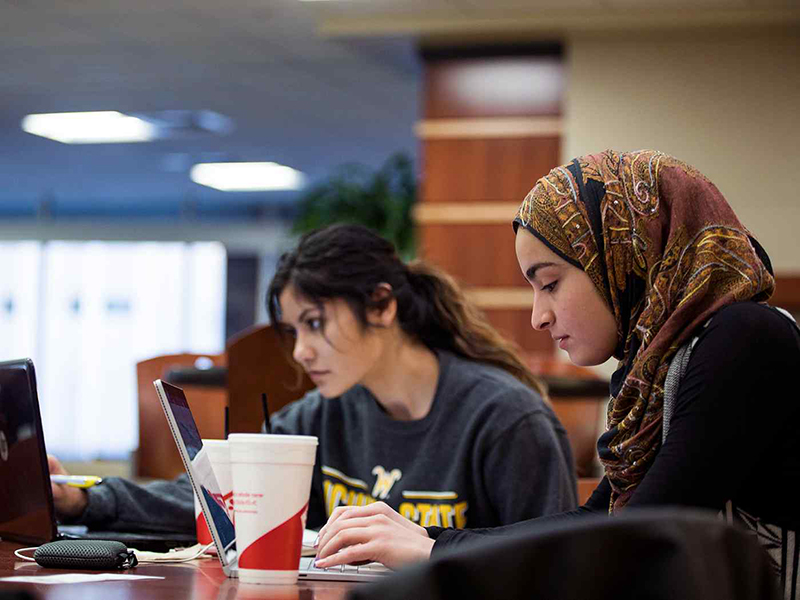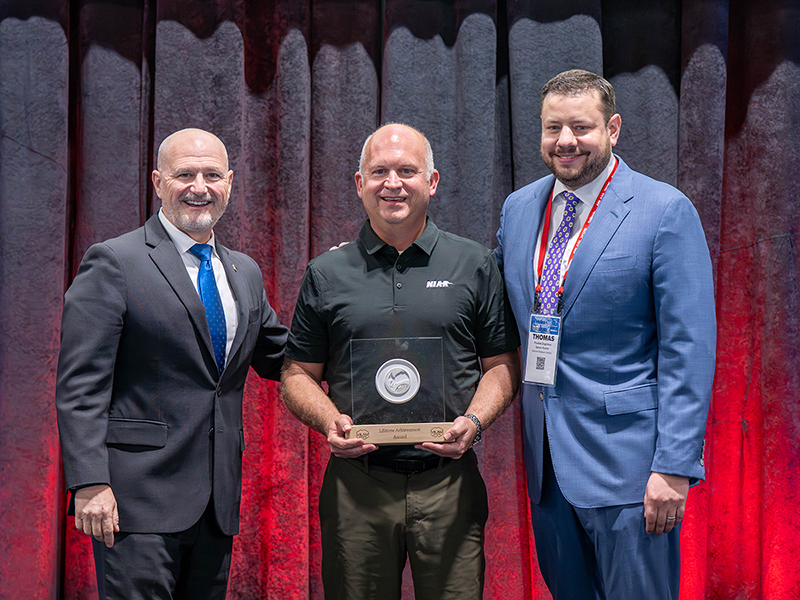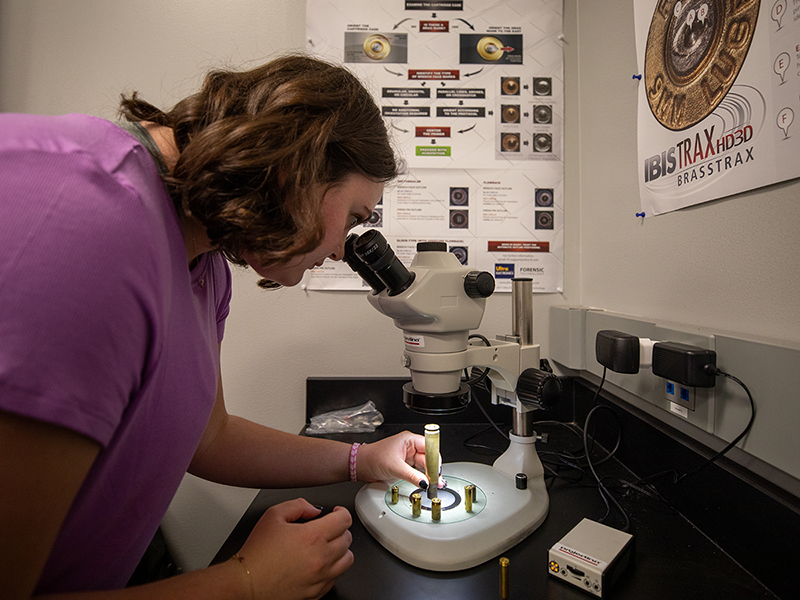Tyler Pennick never imagined that his documentary about the newly revealed bronze WuShock statue, “WuShock Doc: The History and Making of WuShock in Bronze," would be awarded “Best Kansas Documentary Short” at the 18th annual Tallgrass Film Festival Awards this October.
“After over two years of development and help from numerous colleagues. We couldn’t be happier to receive this award,” Pennick said.
Not only was the award a surprise, but the documentary’s acceptance into the Tallgrass Film Festival after two years of filming and editing was a commendable milestone for Pennick as well.
At first, Pennick, director of videography for Wichita State’s Office of Strategic Communications, wanted to make the documentary for Shocker fans to enjoy when it was finished. He didn’t realize how impactful and important the characters in the film would become to the Wichita State community or the university’s history.
“It’s the first time in history that the WuShock from our logo has ever been made in 3D,” Pennick said.
Wichita artists Wade Hampton and Connie Ernatt play significant roles in both the making of the statue and the film.
“They are full of life. They care about Wichita State. They care about their work,” Pennick said.
Hampton and Ernatt were two of the first people Pennick told when he found out that the film could be submitted into the Tallgrass Film Festival.
From that moment on, Pennick was creating a documentary not only for the Wichita State community, but for a globally celebrated film festival created to be a platform for independent films. Not only would Wichita State fans view the documentary, but film enthusiasts from around the world could have the opportunity to enjoy the film as well.
The thought of this opportunity overwhelmed Pennick.
“At first, we were a bit reluctant to submit because of the novelty of it,” Pennick said. “Nobody had ever done that here. It was a lot of new territory for us.”
Aside from navigating uncharted territory, there were other challenges that Pennick and his team had to overcome when creating the documentary.
The making of the film took two years due to the creative process and the timeline uncertainty that arose from the pandemic. Pennick became nervous that the film would not be finished in time for the festival. The statue was revealed in September, which made the timeline fit within the festival’s deadline.
Another challenge for Pennick was telling a detailed and accurate story about the creation of the bronze sculpture.
“There are so many procedures, and it ended up being such a technical film,” Pennick said. “I needed a lot of guidance from the creators to help me understand.”
In the end, the challenges brought more meaning to the accomplishment.
“It was almost like a sense of relief honestly,” Pennick said. “It was a two-year project so when we got accepted, it all was worth it. We were finally finished with it after such a long time.”
To Pennick, the most remarkable part of the entire process was that so many people at the university had a role in the creation of the documentary and of the physical statue. Jaci Ignudo, creative specialist for strategic communications, created the documentary’s graphics and motion elements.
“This is my first time working on a documentary, and everything I’ve done for this project has been a new learning experience,” Ignudo said. “It’s exciting and surreal to be a part of something bigger and collaborative and have others in the industry see what this group of people is capable of.”
Additionally, former video student intern and recent graduate, McKenzey Bell, contributed as a second shooter during the filming process. Wichita State’s National Institute of Aviation Research’s Reverse Engineering Laboratory and students from GoCreate, a Koch collaborative, created a foam WuShock replica which was used in the creation of the bronze statue. The students and foam replica are featured in the documentary.
Although the film was a team effort, the film’s acceptance altered Pennick’s perspective on his own professional abilities: “If the video being accepted has done anything for me personally, it has validated my abilities as a filmmaker.”
Pennick is happy the public can finally view the film.
“Once we got accepted, I was like, wonderful, this is so great. The community can finally see this. I was just excited for the community to finally be able to see it,” he said.
The community was, at last, able to view the documentary during the Tallgrass Film Festival from Oct. 16-25. The documentary can be viewed on Wichita State’s YouTube channel for all to enjoy.







